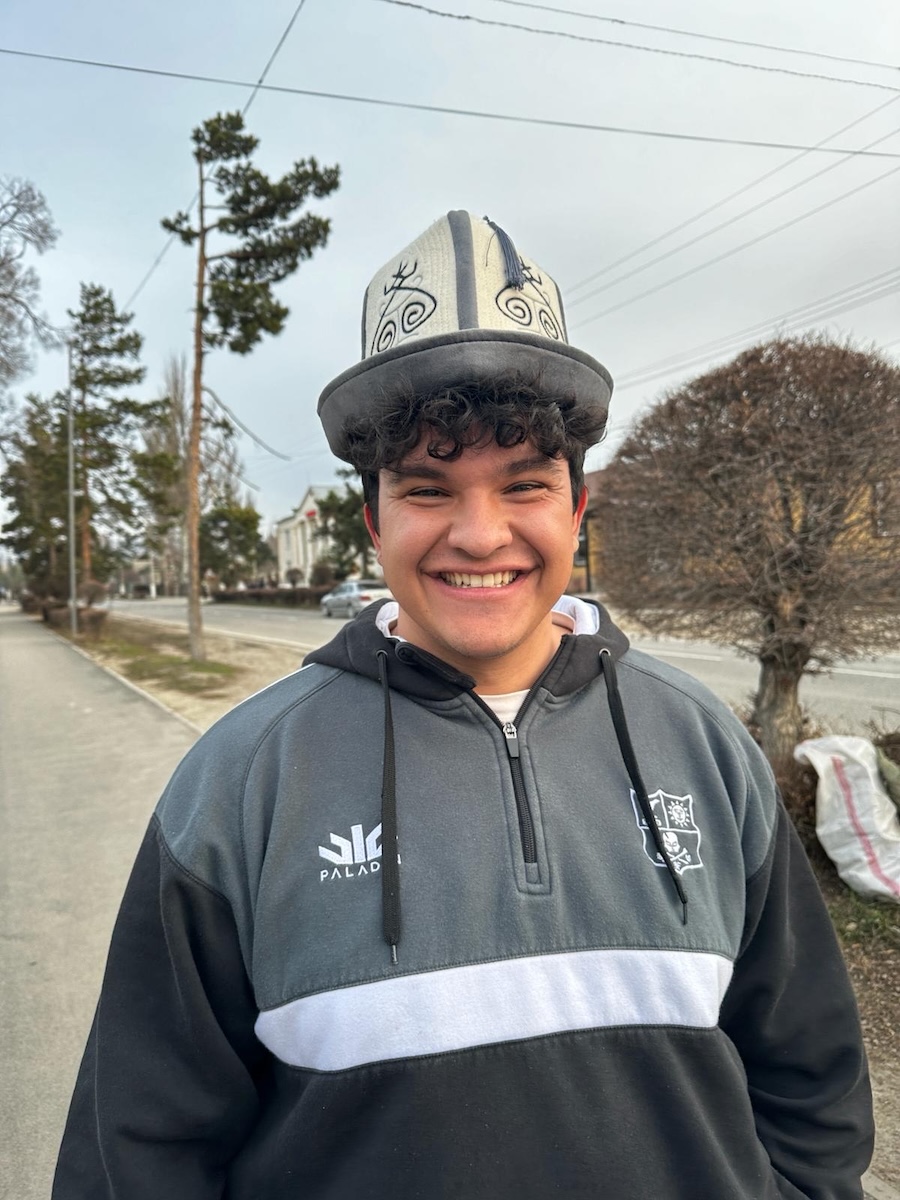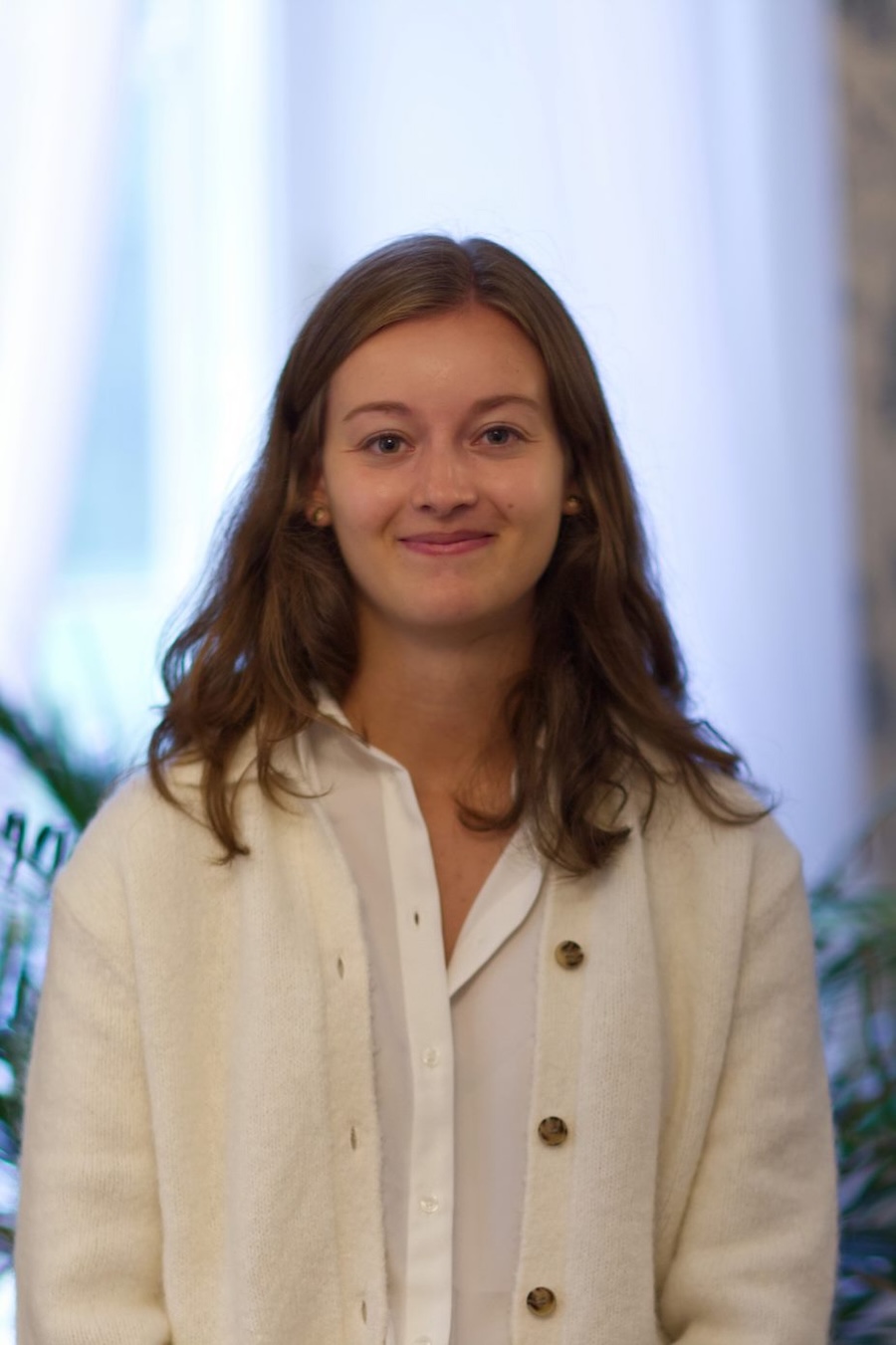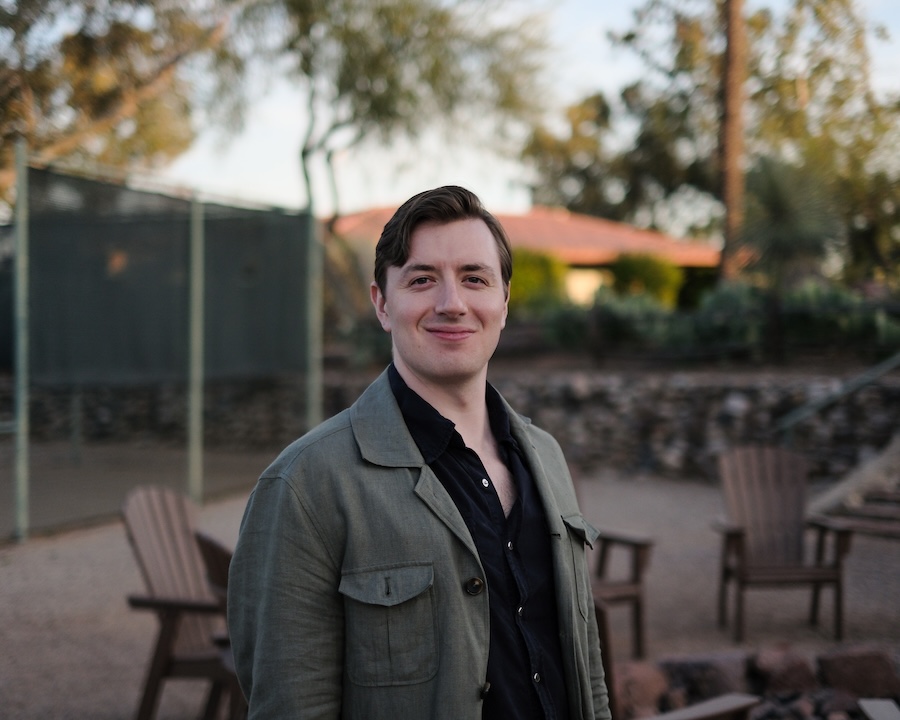What have you been up to since graduating from Bowdoin?
I graduated nine years ago with a dual major in Government and Legal Studies, and Russian. I took courses in each of these departments every semester, following my interests rather than focusing on optimizing for a career. Right after Bowdoin, I received a Critical Language Scholarship through the American Councils, a fully-funded program designed to develop American students’ skills in critical foreign languages. I spent three months living in Vladimir, Russia, which greatly improved my Russian. While there, I applied for think tank internships in Washington, D.C., and secured a position working on Russian defense issues and domestic politics, writing daily reports and contributing to longer-form research projects.
In 2017, I pursued a salaried position and connected with nonprofits and think tanks through the Bowdoin network. A friend from Bowdoin’s class of 2017 helped me secure a role organizing policy conferences on legal and economic issues. These events brought together senior jurists, regulators, and corporate counsel from the U.S. and Europe, giving me valuable exposure to the legal world. That experience led me to consider law school. After discussing the pros and cons of different graduate paths with my mentors, I decided that a JD would best support the career options I was interested in. I was fortunate to be accepted at NYU Law, where I explored a variety of legal and policy work, including positions at the U.S. Attorney's Office for the Southern District of New York, several nonprofits, and an NYU think tank.
After graduating, I joined a large global firm as a litigator, primarily representing individuals and corporations facing investigations and prosecutions by federal and state authorities. I also handle other complex litigation matters and regularly publish on data privacy issues. I maintain an active pro bono practice, primarily focused on asylum work; I have represented several Russian clients, including LGBTQ individuals and a Jehovah’s Witness, two groups whose identities are effectively criminalized by the Russian government.
Why Russian, East European, and Eurasian studies?
As I was graduating high school, I decided that although I already spoke French, I wanted to learn a third language that was less commonly taught in the U.S. and would give me exposure to a new part of the world. Russian fit the bill, partly because I was 18 and thought it was an edgy choice. I also participated in an immersive summer language program at Middlebury, which accelerated my language skills and deepened my appreciation for Russian culture. As mentioned above, I spent additional time in Russia after graduation, and it was through all of these experiences that what began as a superficial interest developed into a lifelong connection with the language and culture.
Are there any classes, professors, or experiences that had a lasting impact on you?
Political theory classes with Paul Franco and Jean Yarborough were particularly important for me, as were Dallas Dennery's courses on intellectual history. I also greatly enjoyed my international relations classes with Barbara Elias, as well as comparative government courses focusing on Russia and Eastern Europe with Laura Henry. I was especially fortunate to have Professor Henry as my advisor, given my interests in Russian language and politics.
What advice would you give to current students or recent graduates interested in your field?
Do not underestimate the power of the Bowdoin network. Graduates from decades ago helped me secure jobs when I needed them. For example, the summer after my junior year, I was supposed to have an internship at the State Department, which I could not begin due to a security clearance delay. I cold-emailed David Biette, a Bowdoin alum then working at an international relations think tank, and he generously offered me an interview and subsequently a position that summer. That experience connected me to incredible people and led to co-author credits. My first salaried job after college also came through the Bowdoin network. In my experience, alumni really enjoy helping students and recent graduates, so don’t be afraid to introduce yourself and reach out. That is the best advice I can give.
One last tip: don’t go to law school unless you’re pretty sure you want to be a lawyer!


